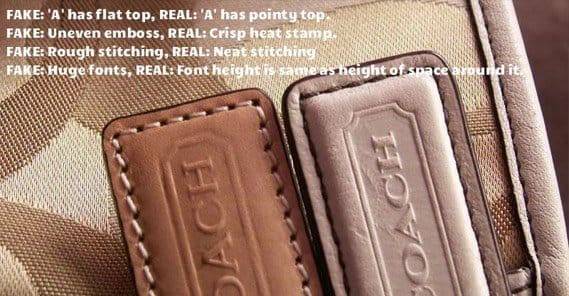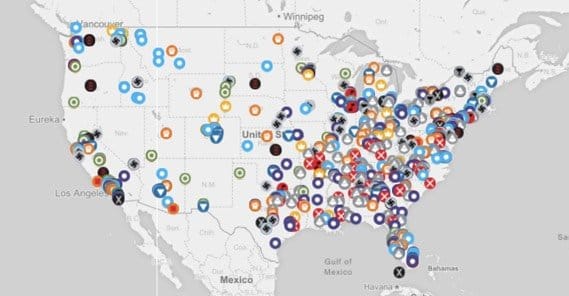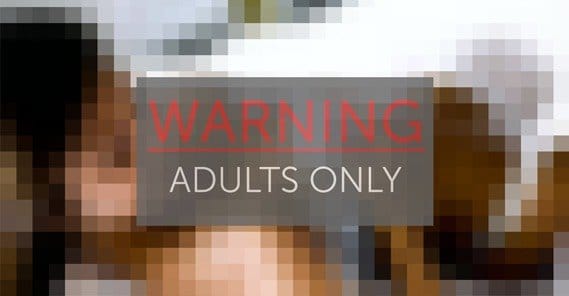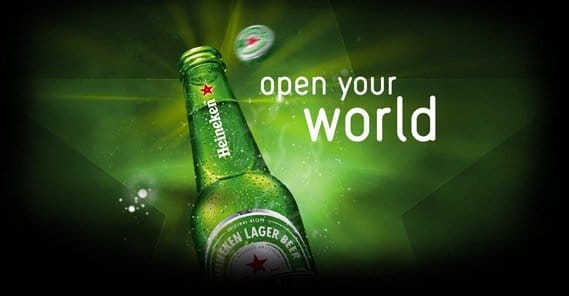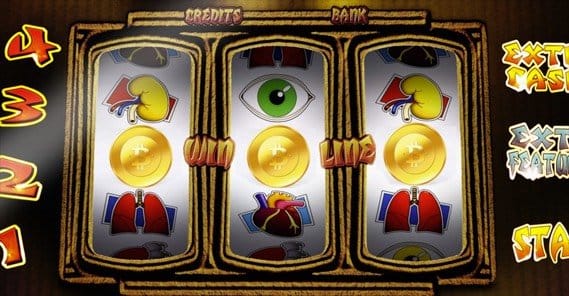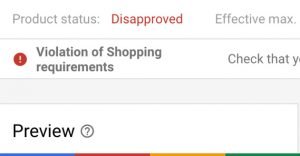List of Businesses That Are Prohibited on Google AdWords
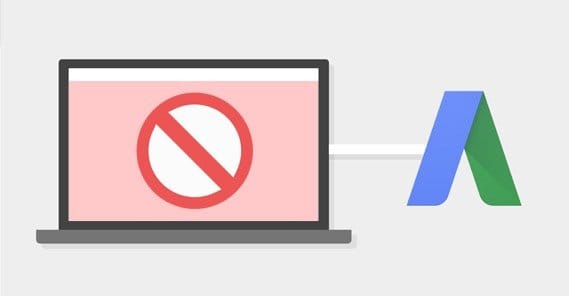
Google has some pretty comprehensive policies when it comes to AdWords. You may be paying to advertise something, but if that something does not fit with the kinds of content Google wants to promote, you’re not going to make it through the filtering process.
If you’re running a business or selling a product that crosses the line into the AdWords prohibited content territory, you’re just going to be out of luck. Very, very rarely Google will give a personal exception to a single business, but that’s not likely to happen. For example, selling pharmaceuticals online is prohibited, unless you’re a licensed and known pharmacy brand. CVS or Rite Aid could advertise, but some random website selling pills cannot. Even then, whenever a CVS representative wants to make a new ad and get it through the approval process, they have to do it while providing proof of their identity and permission.
Some kinds of content are restricted, rather than prohibited. This means you can advertise, but you might have restrictions, like you can’t advertise on YouTube, or you can advertise in the Google search results but not on the broader display network.
Prohibited Content
First and foremost among the types of content that is prohibited on Google AdWords is counterfeit goods. You are not allowed to advertise anything that is counterfeit.
What makes a product counterfeit? Generally, it means that the product contains a trademark or logo that is identical or substantially identical to the trademark of another product. For example, for Coach products, this is a comparison of a fake and a real logo:
Usually, counterfeiters are simply attempting to sell a cheap knockoff as the real thing and make a huge profit in doing so. This is trademark violation and is an illegal practice pretty much anywhere in the world, so Google doesn’t allow it.
This applies even if your ads are advertising products that are not counterfeit, but your website contains other products that are counterfeit. This is something a site like eBay or Etsy might have to contend with, or any site facilitating user sales.
As a fringe definition of counterfeit goods, you cannot advertise products that are intentionally flagged as a replica, knock off, fake, clone, imitation, or other term. Even if you’re saying it’s not genuine, if it’s still close enough to be a trademark violation in the eyes of a court, it’s going to get filtered.
Next up on the list is anything that is dangerous. Any product or service aimed at causing damage, harm, or injury is deniable. This includes a wide range of potentially destructive products.
- Explosives. Chemical bombs, fireworks, firecrackers, grenades, and any instructional material that includes methods to produce bombs of any kind is banned.
- Guns. The definition of a gun in this case is extremely broad, and is “functional devices that appear to discharge a projectile at high velocity.” This includes any and all actual firearms, including handguns, rifles, and shotguns. It also includes recreational guns, bb guns, paintball guns, airsoft guns, and even antique guns if they’re functional. On top of all of this, it includes any part necessary for a gun to function, including ammo, clips, belts, and silencers.
- Other weapons. This includes most knives that are promoted for dangerous use, combat, self-defense, or sport. Concealed knives or other weapons, like cane-swords or throwing axes, are also included. This also includes other defense items, like tasers, brass knuckles, and pepper spray.
- Drugs and paraphernalia. You cannot advertise any drug, including both legal and illegal drugs. Cocaine, Mephedrone, Meth, Heroin, Pot; they’re all prohibited in AdWords. Paraphernalia includes items like pipes and bongs, as well as advertising locations like dispensaries or cannabis coffee shops. You also cannot advertise content that helps people produce or procure drugs, including drug-related web forums or ebooks.
- Tobacco products. Tobacco advertising has been on rocky ground since the 1970s, when cigarette advertising was largely banned. You can read all about the long history of tobacco advertising here. Either way, Google doesn’t allow any tobacco products, including cigars, cigarettes, chew, snus, or loose tobacco for pipes or rolling. They also prohibit advertising paraphernalia here too, including rolling papers, pipes, hookah lounges, and replacement products like e-cigarettes and clove cigarettes.
The common theme with all of these is that they can cause harm in one way or another. It does mean that certain types of businesses simply cannot advertise on Google AdWords. Gun stores, hookah lounges, cigar bars, paintball arenas, fireworks stores, and so forth are all unable to advertise due to their websites falling under prohibited categories.
The next category is anything that enables dishonest behavior. This is kind of a broad definition, but it’s a blanket category Google can use to reject just about anything that’s illegal or that can be used for breaking the law.
What does it mean, though? It’s largely products and services that facilitate illegal activities. For example, buying fake IDs or falsified passports, buying fake diplomas, buying fake urine for passing a drug test, and other such products are prohibited.
Also prohibited are services that violate the terms of service of other sites or businesses. For example, content writing services that focus on writing academic essays or doing homework for you are prohibited. This is also the blanket ban clause that prohibits businesses selling fake clicks, fake social engagement, and other social metrics.
On top of all of this, items that facilitate doing illegal things are prohibited. In this case, it’s services like for-hire hacking, cable or electricity theft, radar jammers, wire tapping and other “spy” devices, and other such illegal obfuscation techniques.
The final prohibited category is inappropriate content. This is also a broad category, so here come the bullet points again.
It’s worth noting that this mostly covers site content, though obviously if you’re trying to run ads with a swastika about how all Jews should be purged, you’re going to get filtered before they even look at your site.
- Dangerous and derogatory content. This includes anything that promotes hate groups or the products and symbols that identify those hate groups. Nazi and swastika imagery is just one category; there are hundreds of identified hate groups in the US. This sub-category also includes anything that incites hatred or violence against any race, religion, disability, age, nationality, sexual orientation, gender, or any other characteristic.
- Harmful content that harasses, intimidates, bullies, threatens, advocates harm or self-harm, or seeks to exploit any group. This obviously includes minority groups, but also includes ads targeting specific people, specific disorders, or even blackmail and extortion.
- Shock content. The iconic goatse (don’t Google that) is just one of many images and other pieces of content that fall under this category. No publishing or advertising crime scene photos, execution videos, gore, sexual fluids, waste products, slurs and profane language, or misspellings of any of the above.
- Scare content. This includes anything that is designed to scare people into taking action. You can’t run an ad campaign trying to convince someone they’re the victim of a conspiracy, and you can’t run a campaign using generic symptoms that scares people into thinking they have a disease.
- Animal cruelty. Anything that promotes cruelty or violence against animals is banned. This includes animal fighting. It also includes products or services that rely on cruelty to animals, like shark fines, ivory, tiger skins, rhino horns, dolphin oil, and other threatened animal products.
- Sensitive events. This is the clause that covers insensitive newsjacking. You can’t use the recent hurricane damage in Texas and Puerto Rico to sell your flood pumps, replacement furniture, or anything of the sort. The key here is that you can’t be advertising in a way that appears to not benefit the victims of the tragedy. If you’re selling furniture to benefit hurricane survivors by donating the proceeds or doing a 1:1 product donation, that would be acceptable.
It should be noted that, with the profane language prohibition, you can get an exception if your product, website, or app contains a name that includes profanity. You can request a review using this link, and you have to be careful with your advertising, but you might be able to squeak through.
Restricted Content
All of the content I covered above is flat-out prohibited in AdWords. I pointed out a couple of exceptions, but they’re very rare exceptions. In general, if your company or ads rely on any of the above, you’re not going to be approved. The penalties for your ads being rejected can range from simple ad denial to having your website suspended or even having your AdWords account suspended, depending on how egregious the violation and how often you’ve tried to circumvent their restrictions.
There are, however, certain types of content that are only restricted, not prohibited. Restricted content might be prohibited in certain geographic areas, or you might need to meet additional requirements in order to be able to run your ads. You are also likely to not be able to access the display network with restricted content, due to how much harder it is for Google to control.
First up is adult content. Adult content covers a wide range of different types of content, so some is prohibited and some is restricted.
As far as the content that is prohibited is concerned, it’s all pretty standard. Anything that is sexually explicit, including pornography, is banned. Anything that is illegal, including child porn, rape, incest, and underage dating, is banned. Anything regarding prostitution as a service, escorts, intimate massage, and so forth is banned. Mail order brides are also banned, and anything similar, like marriage brokers and romance tours.
As for restricted content, some adult content is allowable under some circumstances. Hookup and sex-focused dating sites are allowed. Semi-explicit content is also sometimes allowed, including blurred or censored sexual body parts.
Not-family-safe content is also sometimes allowable. Sex entertainment, like strip clubs and adult parties, can be allowed. Sex toys, aphrodisiacs, and sexual performance enhancers are allowed, though drugs may not; that’s a different category. Erotic content that is not explicit is allowed, and suggestive poses in imagery is allowed, so long as it’s not overly explicit itself. Plastic surgery focusing on sex organs is also allowed.
There are, however, geographic restrictions for all of the above. You cannot target Algeria, Bahrain, Djibouti, Egypt, India, Iran, Iraq, Jordan, Kuwait, Lebanon, Libya, Morocco, Oman, Palestine, Qatar, Saudi Arabia, Syria, Tunisia, the UAE, or Yemen with any adult or non-family-safe content. Meanwhile, China, Germany, Hong Kong, Indonesia, Malaysia, Peru, Philippines, Russia, Singapore, South Korea, Ukraine, Vietnam, and Thailand all prohibit adult content but allow the non-family-safe content.
Alcohol is another restricted area. You probably expected this, all things considered.
It’s largely based on geographic location, which you can read here. In general, you can advertise the sale of alcohol in certain countries, and you can advertise alcohol brands in some countries. You cannot advertise to people under the legal drinking age in your target country, you cannot imply or state that alcohol will improve any sort of physical or mental performance, you cannot portray excessive drinking favorably in any context, and you cannot advertise drinking and operating a vehicle.
Copyrights are also pretty simple. Don’t advertise anything that promotes or facilitates violating copyright. This includes file sharing, content streaming, downloading of copywritten content illegally, or breaking DRM.
Next up is gambling. You can promote offline gambling and online gambling, including casino games with or without money, real money gambling, and information about online gambling. Gambling-like activities, like fantasy sports, match-3 video games, and so forth with real prizes can also be advertised. There are, however, country-based restrictions for all of it. On top of that, while you CAN advertise gambling content, you are REQUIRED to get permission from Google before you can begin. You need to apply for certification here.
Advertising pharmaceuticals and medicines is allowable, but largely follows country laws. If you target a country, you must abide by its laws. Prescription drugs can only be advertised in Canada, New Zealand, and the United States, for example. You also must be certified the same way as with gambling, here. However, you cannot promote the sale of unapproved substances, like Ephedra, hCG, herbal supplements with dangerous ingredients like “peach nuts” (which contain cyanide).
If you’re in any sort of health or medication industry and you’re not sure whether or not you can advertise, click the link above and scroll up; you’ll see various categories and the countries that allow or ban them, depending on which is easier for Google to list.
Political content is allowed for advertising as long as it complies with local laws. This might mean disclosure or it might mean prohibition depending on the region.
Financial services are allowable but are complex. You can’t be an online business, you must have a physical location. You need to disclose any fees for your services, and you must have third party accreditation. Personal loans like payday loans are allowable so long as your terms are disclosed, you provide the APR of the loan, and you display actual costs, not misleading costs. Short-term loans are prohibited. Loan modification is allowed, but again requires plenty of disclosure and accurate information.
Advertising that uses a trademark of some other brand is allowable if and only if you meet the requirements to be considered a reseller, as well as other regional laws, like the EFTA in Europe. Often, the holder of the trademark will prohibit you from advertising in a way that is in direct competition to their own advertising, so pay attention to that as well.
Finally, there are some other restricted businesses that don’t fall into other categories. This includes soliciting donations to anything other than a political party or charity, promoting free software without specifying what software, and some other experimental restrictions.
 ContentPowered.com
ContentPowered.com
